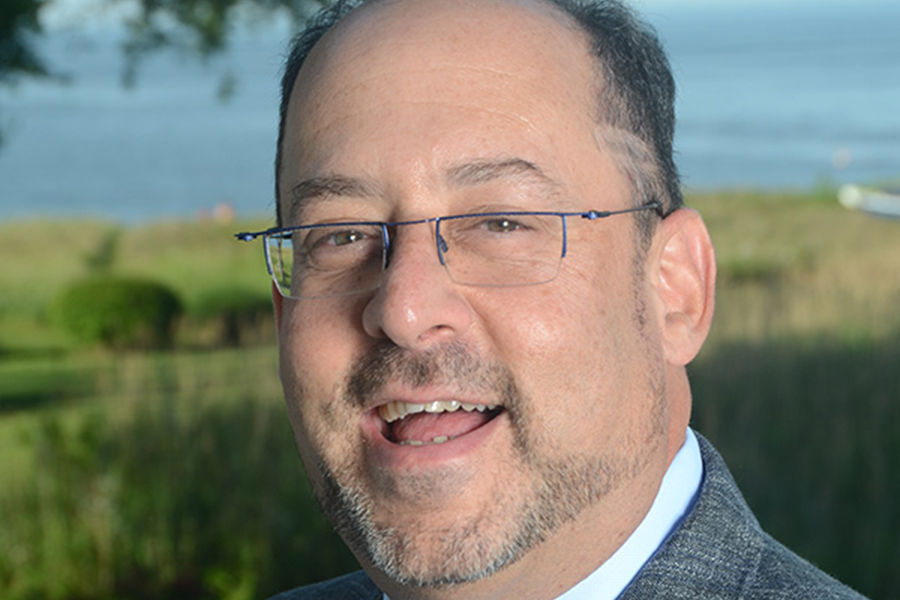Dr. Paul Zeitz has forever fought for justice — be it patients’ rights, human rights or global rights — striving for equal opportunity and egalitarianism for all.
Continuing with his mission, the Philadelphia-born activist and author has formed “Build a Movement 2020,” a set of initiatives aimed at achieving gender- and sexual-orientation equality and sustainability with a call to end child-sexual abuse and incest.
Many of the jobs Zeitz has had — he’s worked with the Obama and Trump administrations as director of data revolution for sustainable development at the U.S. Department of State — as well as books he’s written (e.g., the recently released “Waging Justice: A Doctor’s Journey to Speak Truth and Be Bold”) have led him to this latest endeavor.
“I’ve been very involved in the global AIDS response since early in my career — worked with ACT-UP Philadelphia and Health GAP [Global Access Project] — a movement that was, in many ways, centered in Philly,” said Zeitz. “Other cities such as New York and San Francisco were in on this, and we were making lifesaving anti-retrovirals available, and as activists were connecting on a global scale,” he said.
Zeitz lived and worked in Africa in the late ’90s and saw how AIDS death rates were rapidly accelerating and the response rates were impotent.
“I came back to the states soon after, and worked to create a global AIDS movement that eventually led to the President’s Emergency Plan for AIDS Relief, and mobilized millions of dollars to fight AIDS, TB and malaria … and it was a bipartisan movement.”
It is there where Zeitz developed his long and wide-ranging vision for his memoirs and, eventually, for the justice-based global strategy initiatives that would fill “Build A Movement 2020,” and its “fusion of solidarity so that we can make the impossible, possible” regarding actions on climate-smart sustainable development, renewable energy, gender equality and more.

“All of these things tie together,” he said. “And if you’re fighting for one, you must fight for them all.
“Some say it is too broad what I’m doing with Build a Movement, but I believe we must take on all these issues, and have to look at them as interrelated challenges and opportunities. A silo-ed approach to these problems will no longer work. Movements, say for gender equality and LGBTQ rights, may be moving in parallel. And we get small leaps forward moving separately. But, we are in such crisis mode that working together and in an interrelated sense allows us to work together and cut across the political spectrum for solutions. I saw that work with the AIDS initiative.”
While going about the good fight in his late 40s, Zeitz also realized that he was a survivor of early childhood sexual abuse.
And now, in a post-“Leaving Neverland” landscape, he aims to bring that issue to the forefront.
Zeitz’s father and mother owned sandwich shops on Chestnut Street and in the Northeast. “My folks came home every night smelling of fried onions,” he recounted happily. All of that, however, was a mask that Zeitz was hiding behind; a lapsed memory of abuse.
In his memoir, “Waging Justice: A Doctor’s Journey to Speak Truth and Be Bold,” Zeitz shares the journey of discovery after having had an amnesia barrier for decades.
“We’re still in the breaking-the-silence-phase of talking about incest and child abuse,” he said. “The ‘Leaving Neverland’ film helps us to become more aware of how pervasive such abuse is against boys and girls. The Catholic Church scandal, the Penn State scandal, the Boy Scouts scandal too — we’re starting to break through the notion of ‘this can’t happen where we are.’”
To help combat such abuse, Zeitz insisted that we must utilize public-health data models and factor mathematically by gender, age, race, location and educational status just who and where the abused are and how often this is happening.
“We don’t have good data. It’s a silent pandemic. And it’s not just in the states. It’s a global problem. We must show accountability for the systemic abuse of children.”
Seeing “Leaving Neverland” also reminded Zeitz of the insidious grooming that occurs, not only between impressionable children and manipulative adults, but to the larger family units and the society around them (an example of societal grooming being how no one wants to believe that Michael Jackson could be capable of such heinous crimes).
“The feelings and experiences that the victims in ‘Leaving Neverland’ had were so resonant with my own,” Zeitz said. “There was a power figure who showered me with gifts, groomed me with pornography and threatened me with the secret that only he and I could know about. When Michael Jackson’s lawyers bullied those two kids, they were bullying all of us who have been abused and who have survived.
“We’re all in this state of grooming day to day, and are subjected to child-sexual abuse with about 40 percent of such abuses occurring within the family. That’s the next step of breaking the silence, excavating the layers of shame that go with incest. I am here to be a shame-buster, to push all of us to speak out and more openly.”
Build a Movement 2020 embraces a call to end child sexual abuse and incest by creating safe spaces for survivors to reveal and heal their hidden trauma.
“You have to look underneath many layers with these initiatives to start creating action,” Zeitz said of organizing and mobilizing survivors to create political agendas to battle the pandemic. “I crated a framework of issues that I could add value to in their aid. I’m speaking out and encouraging others to speak out and act, just like we did with the global AIDS movement in the ’90s.”
To learn more about these initiatives, email [email protected] or go to www.drpaulzeitz.org.
